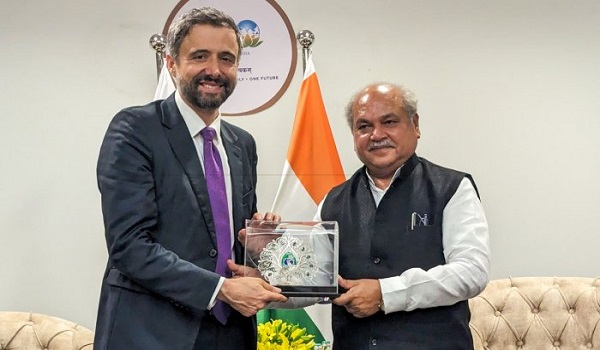The United Nations Fund for Agricultural Development (IFAD) has praised India for its efforts in reviving the focus on millets and exporting 1.8 million tonnes of wheat to 18 countries that experienced food shortages due to the war in Ukraine. Alvaro Lario, the president of IFAD, also highlighted the potential of India’s G20 presidency to transform global food systems, as it aligns with the priorities of the UN body.
In an interview, Lario emphasized the importance of India’s exports of wheat to countries facing acute food shortages. He commended India’s focus on the revival of millets, which are drought-resistant crops that provide nutrition in remote and impoverished regions.
Lario suggested that India can play a global role in transforming food systems at the G20 president. He emphasized the need to address the challenges faced by food systems, such as cumulative shocks, the impact of the COVID-19 pandemic, the war in Ukraine, and climate change.
The war in Ukraine has led to a humanitarian crisis and has affected global food and fuel prices, impacting vulnerable populations and small-scale farmers. Lario emphasized the importance of investing in medium- to long-term development to avoid similar costly crises in the future.
The areas identified by India’s G20 presidency for food systems transformation, including global food security, climate-smart agriculture, inclusive value chains, and digital technology solutions, align with IFAD’s concerns.
Lario also acknowledged India’s progress in becoming a food surplus country from a food deficit one. IFAD has supported India in strengthening its focus on local production systems, building markets, and building resilience.
Lario highlighted the need for significant investment to revamp food systems, estimated at USD 300 billion to USD 350 billion per year. He emphasized that IFAD’s expertise and partnership with governments can help make public investment more efficient and attract private investors.
Furthermore, Lario emphasized the importance of supporting small-scale farmers, who produce up to 70% of the food consumed in low- and middle-income countries. He stressed the need for climate finance to mitigate emissions and support economies in adapting to climate change, noting that current efforts are insufficient to meet global commitments under the Paris Agreement.


